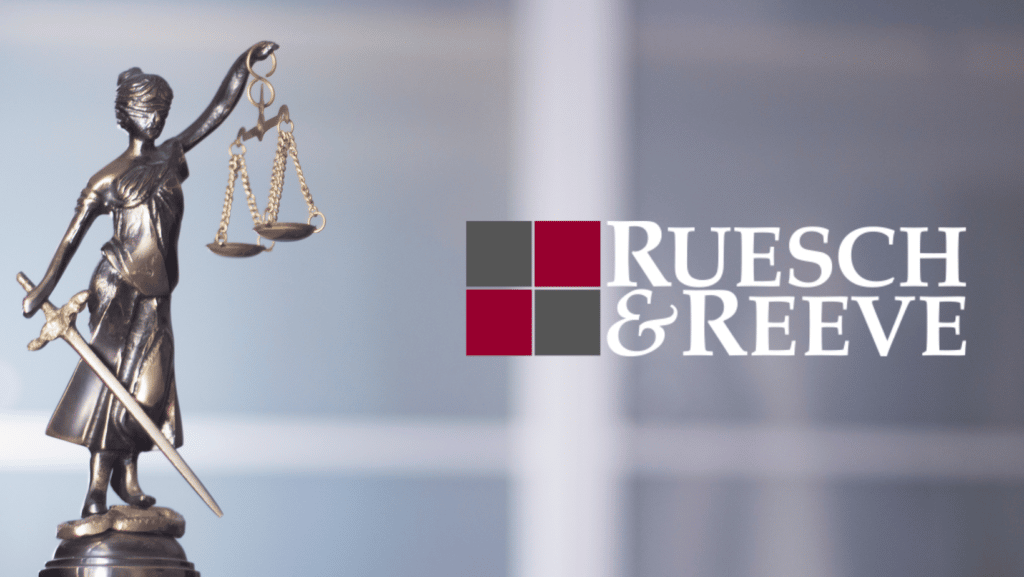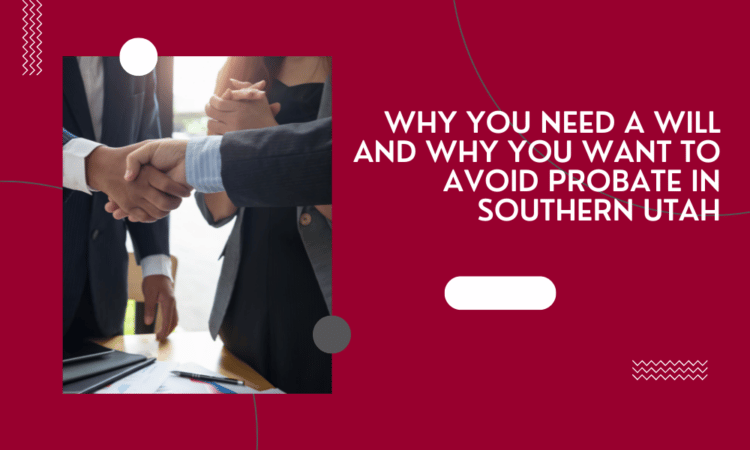Creating a will is a highly crucial action you can take for both you and your loved ones. A Will can not only legally safeguard your children, spouse, and your assets, but it can also outline what you’d like to see happen after you’ve passed away. Today in this blog post, Ruesch and Reeve will help you understand the relation between a will and Probate, as well as some compelling points on why you should avoid Probate. These points have been developed from the experiences of our esteemed experts in estate planning in St George UT.
A will is a formal document that outlines the wishes and desires of a person regarding the distribution of their property when they pass away. The person who owns the land is known as the person who wrote the Will when he wrote the Will.Property included in a will can be anything, including funds, assets, fixed deposits, existing assets, etc.
Probate is the process where a court formally accepts a will as valid, and the distribution of the decedent’s estate can follow the steps and wishes outlined in the will. If a person passes away with no will (known as intestate), probate will be done following the state’s laws of intestacy. Probate is a crucial document for the distribution of the real estate. This is why the Problem can be described as a written document or a method of executing a Will.
Anyone who has a basic understanding of estate planning in St George UT, understands one of the most essential advantages of a living trust is the ability to stay clear of Probate. But, unless an attorney or were actively involved in the probate process in the past, a few people are aware of what Probate is and the reasons why it’s not recommended for the majority of estates.
In simple terms, it’s a court-supervised procedure for administering and (hopefully) the distribution of an individual’s estate following their death. Suppose a person dies and leaves the property (especially property) under their own name. In that case, the sole method to pass ownership over from the deceased owner’s name to the heirs of their estate is to have the court decide how to transfer the property through probate. Also, because the deceased owner of the property is not able to sign deeds, only a judge can transfer property following the death of the owner, and Probate is the formal procedure that allows this to happen.
The Reasons why you Should stay clear of Probate

Many people believe that a will by itself does away with Probate. A will only communicates your final wishes regarding your property (and sometimes minor children, if necessary). However, Probate remains necessary to fulfill the wishes stated within the document (since even the will states that property remains under the decedent’s control). Trusts are one of the ways to avoid Probate since when you establish a trust, all your assets are transferred into your trust, thus avoiding the requirement for a court to perform the transfer.
There are many stories of heirs to famous celebrities who underwent Probate, such as Jimi Hendrix, Heath Ledger and, most recently, Prince. In some cases, Probate could be an option. However, consider these five reasons to prefer not to have your estate go through Probate:
Probate is a publicly-held process.
Like any court proceeding hearings before the court, the probate documents are available to the general public. For instance, anyone curious about James Gandolfini’s (aka Tony Soprano) last will and testament will be able to have access to this information through the internet, which includes detailed information about his finances, assets, and family members. Probate courts generally require filing an inventory and an accounting of the estate in the court.
Anyone can go to a courthouse to examine or copy probate records. The courts may also offer this information on the internet. If you are interested in keeping your financial records, property, or your family members’ information private after your death, it is best to avoid Probate. Personal representatives must notify all creditors of your passing. One of the principal reasons for Probate is to give creditors the chance to resolve any debts a decedent may have with them.
One of the primary reasons to conduct probate is to notify any known or reasonably ascertainable lenders that the decedent has passed away and that, in the event they have any outstanding debts, they have a limited time to take action. After a creditor is notified, they are required to submit a claim to a the probate judge within the period permitted to be allowed reimbursement from the deceased’s estate (assuming there are no conflicts and that there are assets for payment).
It is a judicially supervised procedure that is supervised by the court.

In many Probate proceedings, the court’s approval is required throughout the process. Starting with appointing the personal representative to administer the estate according to the Will (if there is one). Along with confirming the dispositions of property, approving the accounts and inventory for the estate, settling disputes between beneficiaries or creditors in the trust, and approving final dispositions to the deceased estate.
The process is full of regulations and procedures if the estate planning in St George UT must be followed to receive court approval. For instance, selling real estate via the probate process could require the acquisition of formal appraisals, putting up the property for sale via an auction process in the court, and finally securing court approval of the sale. However, trusts are usually managed without the involvement of a court, the trustees of the trust may be very flexible with regards to how their assets can be distributed without having to undergo many formalities that courts would need to follow.
It can be lengthy & time-consuming.
In terms of the administration and distribution of the assets and estate planning in St George UT. Due to the numerous legal procedures and regulations for administering an estate in Probate, they take months or even years. If there are disputes, claims, or other problems during probate proceedings, the process could be lengthier.
For example, the estate of country music legend John Denver took over six years to finalize. As courts continue to report decreased funding and high caseloads, delays are likely to be a common element of the probate process.
Probate can involve substantial attorney’s costs.
While parties may choose to represent themselves during Probate, lawyers are usually retained due to the formal and distinct process of probate. Attorney’s fees generally are paid for by the estate, based on an amount of the value of said estate.
For example, in California, the cost to manage an estate with one property worth $300,000 would amount to approximately $9,000. If there are issues with administering an estate that requires specialized services, the charges will be higher.
However, this does not mean that Probate is not a good idea in all cases. Probate can be beneficial to estates where the heirs/beneficiaries seek the order and certainty a court can provide. For instance, if an estate is seeking to shorten the time that creditors can pursue the estate, Probate could be beneficial as creditors are given a minimal time frame to submit their claims.
Heirs who have an ownership interest in the estate but worry about the potential for ongoing disputes over the estate’s assets might find probate to be the perfect venue to have these disputes resolved in a single and, definitive, and unconstitutional court decision. On the other hand, heirs might consider probate to be not worth the time, costs, complexities, and emotional stress in dealing with lawyers and courts, particularly when they are still grieving for their loved one’s death. All one needs to do is search for all the estates of famous people that underwent probate to see the difficulties loved ones might undergo after one’s passing.
In conclusion
This is a simple overview of Will’s importance, its link to Probate, and why one might see the benefit of avoiding probate altogether. We at Ruesch and Reeve hope this has made you aware of its importance. If you still have any questions regarding estate planning in St George UT, or are confused about anything, our experts will be happy to help you clear any doubts.

